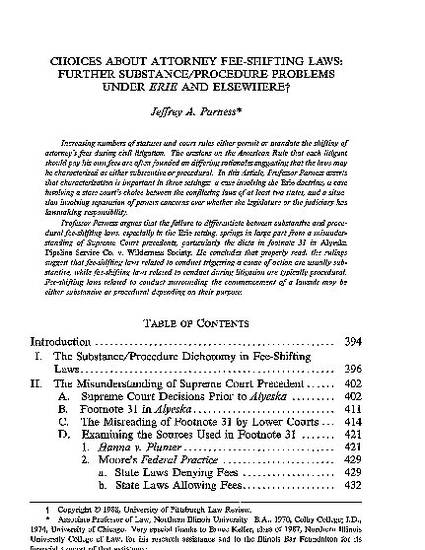
Many statutes and rules operating in courts in the United States permit or mandate the shifting of attorney's fees in civil litigation. The erosion of the so-called American Rule on attorney's fees is found in laws that may be characterized as substantive or procedural. Proper characterizations should be founded on the rationales underlying the laws, as with promoting certain claims like civil rights violations (substantive) and with deterring attorney and party misconduct during civil litigation (procedural). These characterizations must be made in three settings: (1) Erie cases (i.e., a state law claim in a federal court); (2) choice of state law cases (i.e., an Illinois court hears a Wisconsin law claim); and (3) choice of who makes written laws within a state (i.e., legislature regulates conduct between parties leading to claims, while high court regulates attorney and party conduct during civil claim resolution in court). These characterizations have been made difficult by the unfortunate language in footnote 31 in Alyeska Pipeline Service Co., wherein the U.S. Supreme Court said that in diversity cases in the federal courts, "usually" state laws on recoveries of attorney's fees should be followed where those laws reflect "a substantial policy of the state."